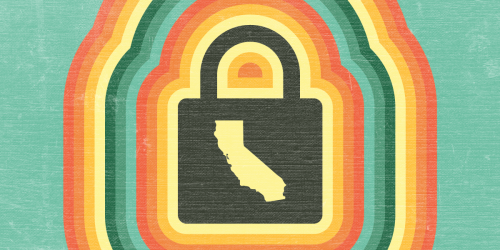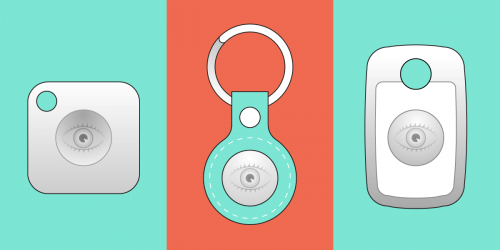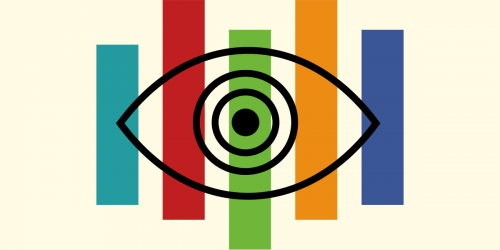La semana pasada, el Fiscal General de Nueva York logró una multa de 410.000 dólares para Patrick Hinchy y a 16 empresas que dirige y que producen y venden spyware y stalkerware. Además, él y sus empresas deberán modificar sus programas espías para alertar a las víctimas de que sus dispositivos han sido comprometidos. Esto envía un mensaje claro a los desarrolladores de aplicaciones que ganan dinero instalando subrepticiamente software para espiar los dispositivos de otros: el Estado de Nueva York no tolerará sus acciones.
La EFF lleva mucho tiempo defendiendo la lucha contra el stalkerware: nuestra Directora de Ciberseguridad, Eva Galperin, ayudó a fundar la Coalición contra el Stalkerware hace tres años. En este tiempo, hemos instado a legisladores y legisladores a que se tomen la amenaza que supone el stalkerware para la seguridad y la privacidad de sus víctimas tan en serio como otras formas de malware.
El stalkerware, un tipo de software de vigilancia disponible en el mercado, se instala en los teléfonos sin el conocimiento ni el consentimiento de los usuarios de los dispositivos para espiarlos en secreto. Las aplicaciones rastrean la ubicación de las víctimas y permiten a los agresores leer sus mensajes de texto, llevar un registro de sus llamadas telefónicas, fotos, videos, historial de navegación por Internet y mucho más. Se utiliza en todo el mundo para intimidar, acosar y perjudicar a las víctimas, y es una de las herramientas favoritas de acosadores y cónyuges o ex parejas maltratadores.
En un comunicado de prensa anunciando la multa , la fiscal general de Nueva York, Letitia James, lo expresó en términos muy claros: "Estas aplicaciones y productos ponen a los neoyorquinos en riesgo de acoso y abuso doméstico, y fueron promovidos agresivamente por Patrick Hinchy a través de 16 empresas diferentes. El acuerdo de hoy impedirá que estas empresas permitan que los neoyorquinos sean vigilados sin su conocimiento, y continuará nuestra lucha en curso para proteger los derechos, la seguridad y la privacidad de los neoyorquinos."
En los últimos años, hemos asistido a un cambio en la forma en que los reguladores perciben el stalkerware. En una resolución pionera de septiembre de 2021, la Comisión Federal de Comercio (FTC) prohibió a la empresa de aplicaciones para Android Support King y a su director ejecutivo Scott Zuckerman, desarrolladores de SpyFone, del negocio de la vigilancia. Hace casi un año, la legislatura de Maryland aprobó, unanimente. un proyecto de ley que obliga a las fuerzas del orden a aprender a reconocer las tácticas habituales de vigilancia electrónica y las leyes que rigen tales actividades. La doble penalización impuesta en Nueva York es una buena forma no sólo de desincentivar a los posibles desarrolladores de programas de acecho, sino también de empezar a reparar algunos de los daños causados por esta turbia industria.
Por bienvenido que sea, aún queda trabajo por hacer. El negocio de la venta de programas espía y de acecho sigue ofreciendo oportunidades lucrativas a quienes no se preocupan por los daños que causan, y muchos de sus actores no son tan fáciles de sancionar o incluso de identificar. El año pasado instamos a thela FTC a investigar una red de aplicaciones de acecho que fue motivo de un reportaje de TechCrunch. Nuestro llamamiento a la FTC para que investigue esta peligrosa red sigue en pie.
Aplaudimos al estado de Nueva York por defender a las víctimas de esta industria dañina e invasiva. Esperamos que otros estados sigan el ejemplo que ha dado Nueva York al proteger a sus propios ciudadanos de estos daños.
Last week, the New York Attorney General secured a $410,000 fine from Patrick Hinchy and 16 companies that he runs which produce and sell spyware and stalkerware. In addition, he and his companies must modify their stalkerware to alert victims that their devices have been compromised. This sends a clear message to app developers who make their money by surreptitiously installing software to spy on the devices of others: the State of New York will not tolerate your actions.
EFF has long championed the fight against stalkerware: our Director of Cybersecurity Eva Galperin helped found the Coalition Against Stalkerware three years ago. In this time, we’ve urged legislators and rule-makers to take the threat stalkerware poses to the safety and privacy of its victims just as seriously as other forms of malware.
Stalkerware, a type of commercially-available surveillance software, is installed on phones without device users’ knowledge or consent to secretly spy on them. The apps track victims’ locations and allow abusers to read their text messages, monitor phone calls, see photos, videos, and web browsing, and much more. It’s being used all over the world to intimidate, harass, and harm victims, and is a favorite tool for stalkers and abusive spouses or ex-partners.
In a press release announcing the fine, New York’s Attorney General Letitia James put it in no unclear terms: “These apps and products put New Yorkers at risk of stalking and domestic abuse, and were aggressively promoted by Patrick Hinchy through 16 different companies. Today’s agreement will block these companies from allowing New Yorkers to be monitored without their awareness, and will continue our ongoing fight to protect New Yorkers’ rights, safety, and privacy.”
In the past few years, we’ve seen a shift in the way stalkerware is perceived by regulators. In a groundbreaking ruling in September 2021, the Federal Trade Commission (FTC) banned the Android app company Support King and its CEO Scott Zuckerman, developers of SpyFone, from the surveillance business. Almost a year ago, Maryland’s legislature unanimously passed a bill requiring law enforcement agencies to learn to recognize the common tactics of electronic surveillance and the laws around such activities. The double-penalty imposed in New York is a welcome way not only to disincentivize would-be stalkerware developers, but also to start to redress some of the damages caused by this shady industry.
Welcome as it is, more work remains. The business of selling spyware and stalkerware still presents lucrative opportunities to those unconcerned by the harms they cause, and many of its players aren’t as easy to impose penalties on or even identify. Last year, we urged the FTC to investigate a stalkerware app network which was the subject of TechCrunch report. Our call on the FTC to investigate this dangerous network still stands.
We applaud the state of New York for standing up for the victims of this harmful and invasive industry. We hope other states will follow the example New York has set in protecting its own citizens from these harms.













